New official version
On Thursday, 20 July 2023, we have released a new official version on the EXMARaLDA tools!
This is the first release since October 2019. We needed to consolidate and reorganise EXMARaLDA development, maintenance and support in the meantime. All EXMARaLDA activities are now coordinated via linguisticbits.de. EXMARaLDA continues to be free and open-source. A new model for financing further development, maintenance and support is in the making.
A full list of changes for the new versions can be found here. Feel free to post or comment on issues on GitHub if you discover a bug or have an idea for a feature. Here is an overview of the most important changes in the new official version:
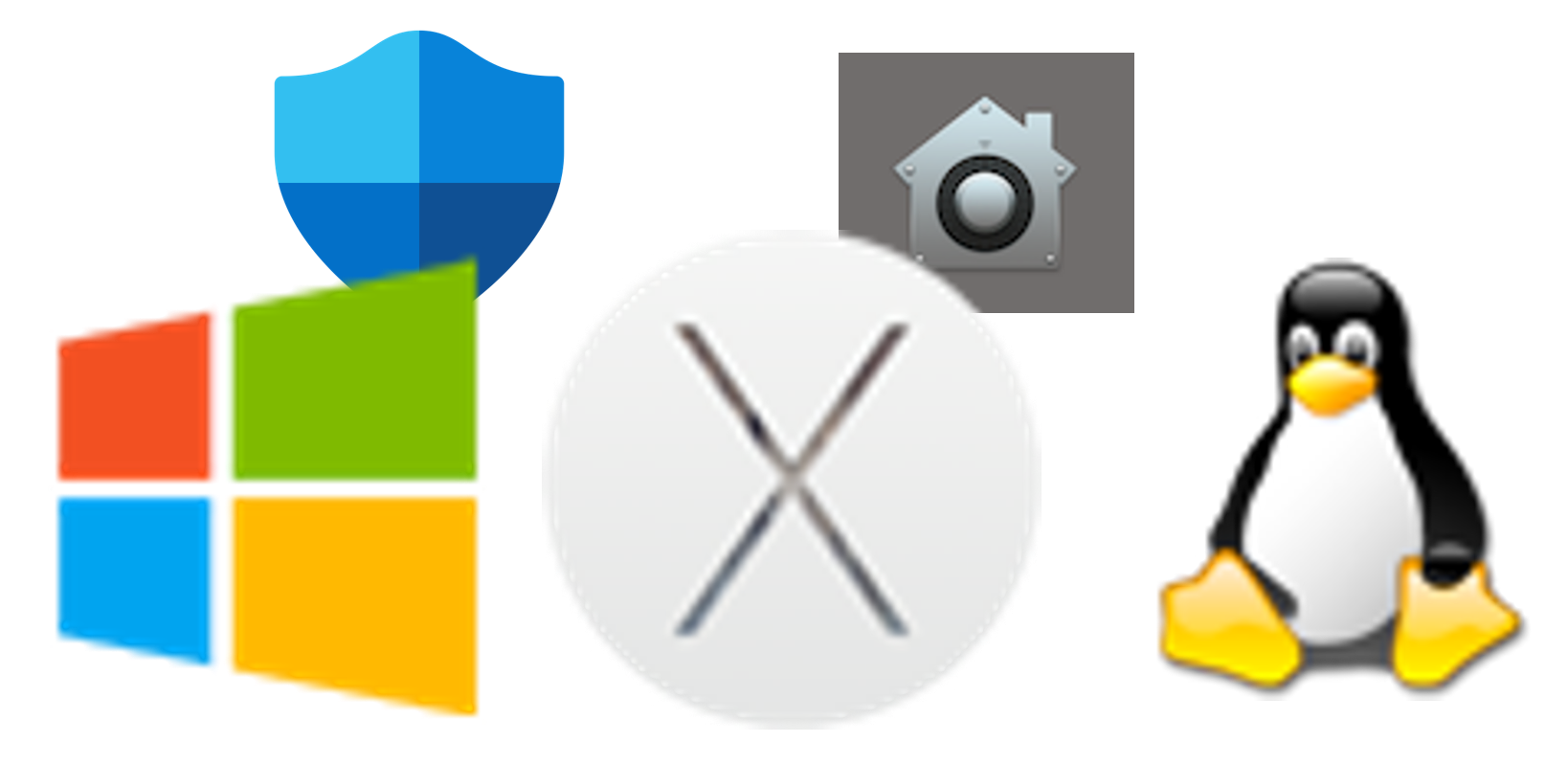
Trusted installers for all operating system
EXMARaLDA is now available for MAC OS computers with the Silicon architecture (M1 or M2 chip). It continues to be available for Windows, Linux and MAC OS with an Intel architecture.
Installers for Windows and Disk Images for MAC OS are now verified (signed, notarized) so that no security restrictions will apply when the software is installed. For Linux, installation can now be done via a Debian package.
Improved support for ISO/TEI Standard
Support for the TEI based standard “ISO 24624:2016 Language resource management — Transcription of spoken language” has been improved and extended. Export to this standard can now be configured to reflect different levels of detail and different transcription conventions. It is now also possible to import ISO/TEI transcripts into the Partitur-Editor and FOLKER. The ISO/TEI standard offers new possibilities for interoperability, for instance with ZuMult and other tools (see this publication).
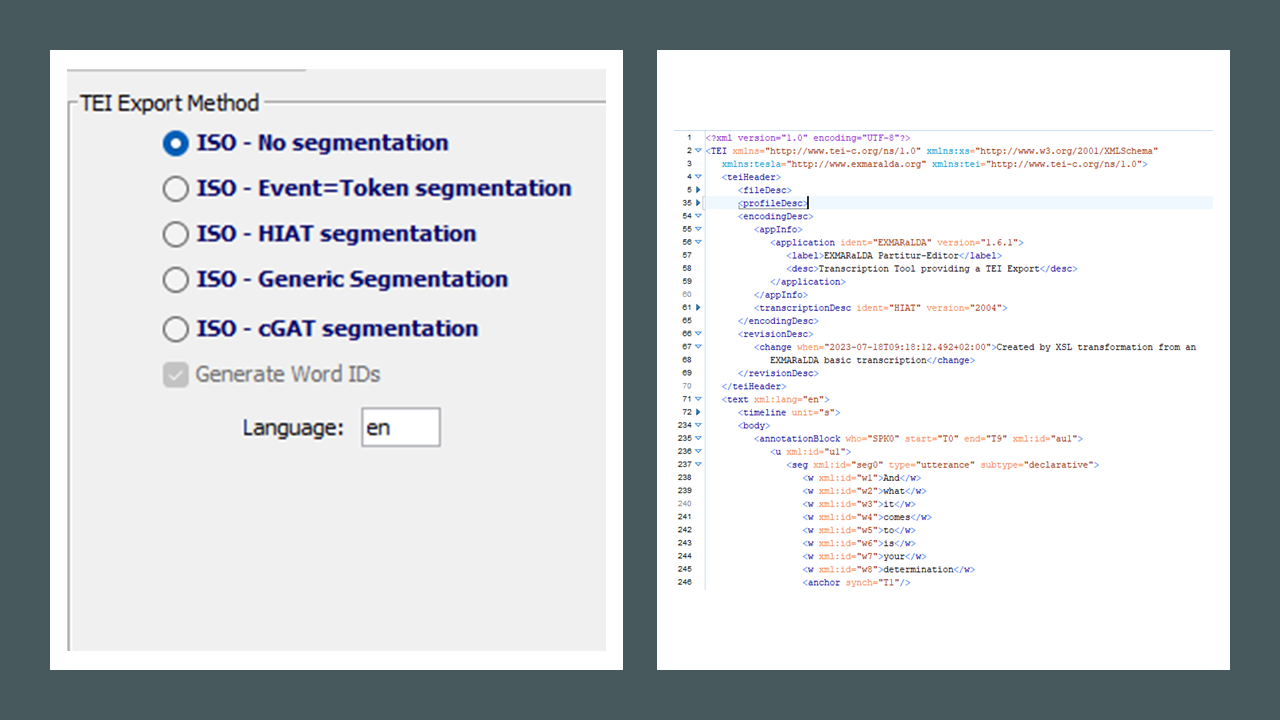
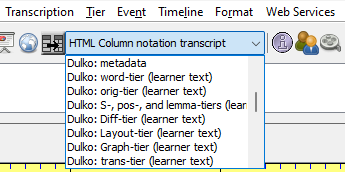
DULKO integration
The DULKO tools for annotating learner data have been fully integrated into the official EXMARaLDA distribution (thanks to Andreas Nolda!). Dulko transformations are directly accessible via the toolbar, and the Dulko template can be used via the File menu.
New Webservices: DeepL and BAS
An interface to DeepL web services has been developed which will allow you to to automatically translate transcribed text into more than 20 languages. Further web services from the Bavarian Archive for Speech Signals (BAS) will perform Grapheme to Phoneme Conversion and fine alignment of coarsely aligned transcripts.

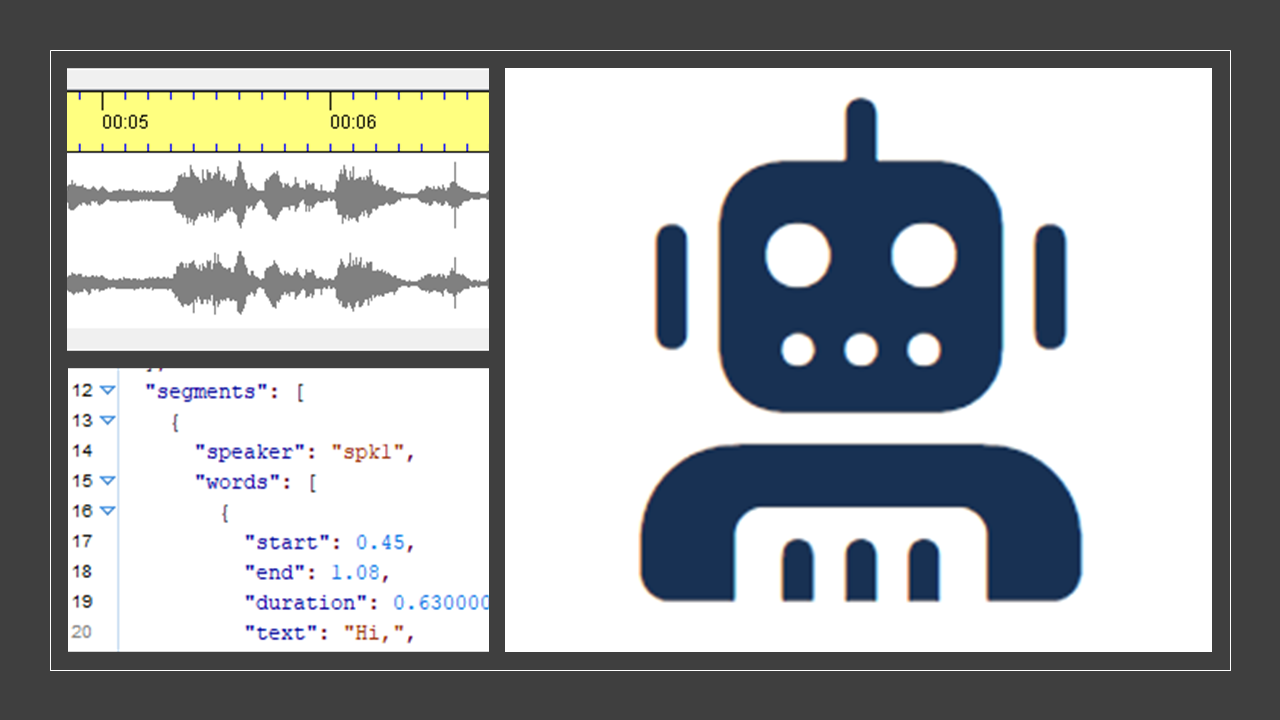
Interoperability with Speech Recognition Systems
EXMARaLDA can now import the results of Automatic Speech Recognition (ASR) systems. We currently support OpenAI’s Whisper, Amberscript and Adobe Premiere, others may follow as needed. See also this blog post.
Types and Tokens lists
In the Partitur-Editor, types lists for selected tiers can now be generated to help with development of annotation specifications and consistency. Listing all events of a tier in a sortable tokens list is a new way of efficiently navigating in a transcript.
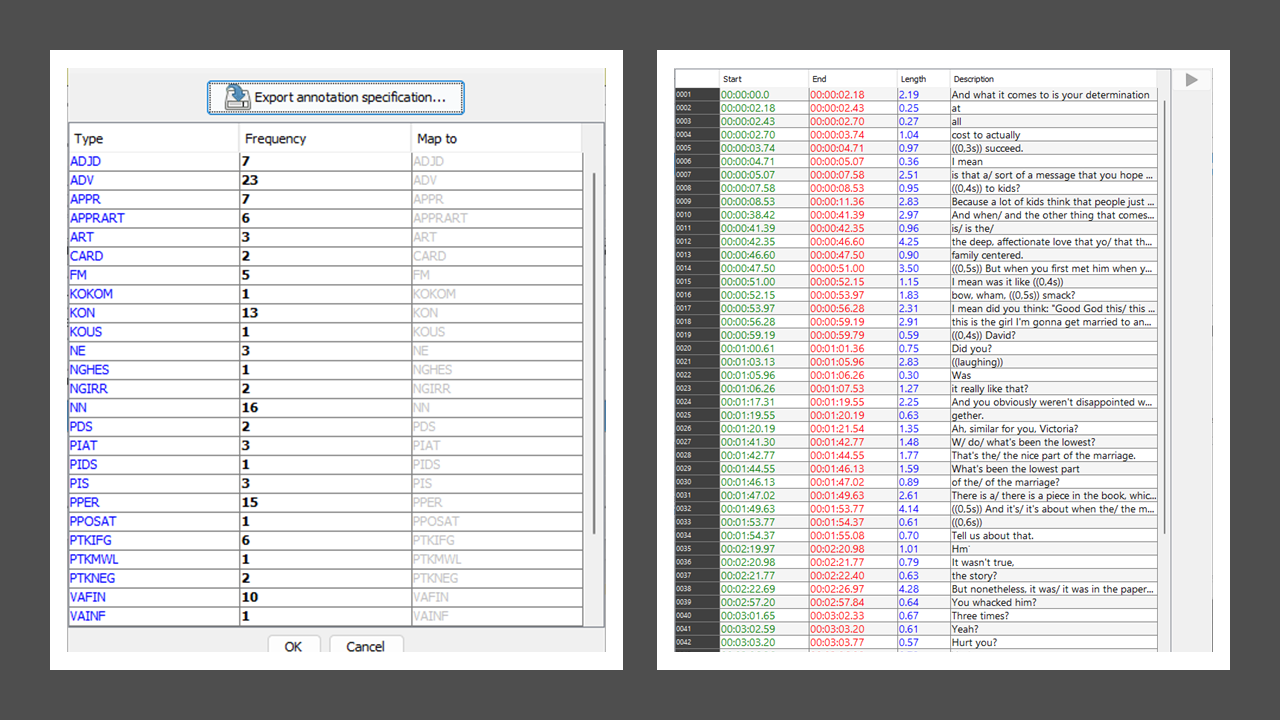
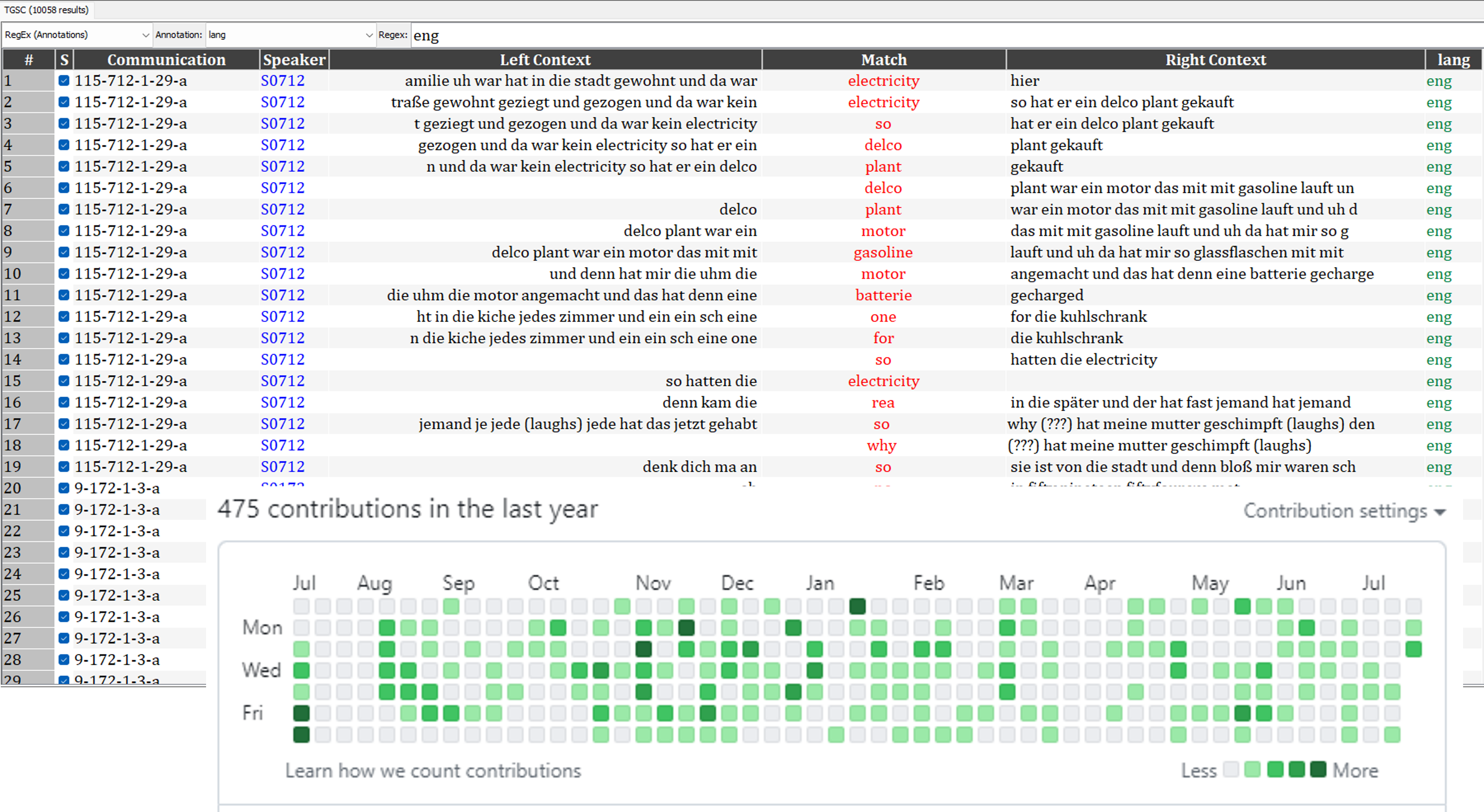
… and then some
Further changes include an improved display of search results in EXAKT, support for regular expressions in the Search&Replace functions of the Partitur-Editor, updated media players (with support for MPEG-4 videos), an updated normalisation lexicon in OrthoNormal, interoperability with the Frazier tool, improved interoperability with subtitling formats (VTT, SRT), integrated annotation specifications for STTS, and a number of bug fixes.

